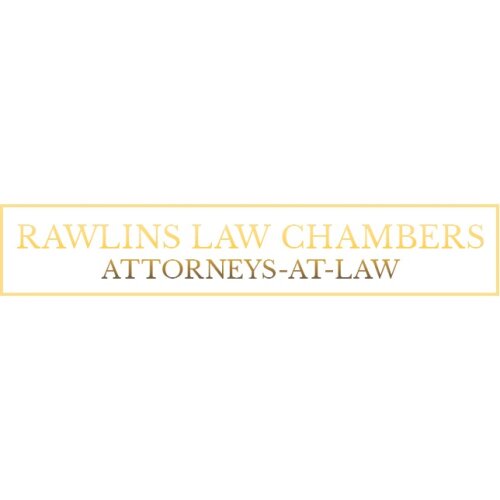Best Education Law Lawyers in Barbados
Share your needs with us, get contacted by law firms.
Free. Takes 2 min.
Or refine your search by selecting a city:
List of the best lawyers in Barbados
About Education Law in Barbados
Education Law in Barbados encompasses various statutes, regulations, and case law that govern the education system within the country. This field of law covers matters related to the rights and obligations of students, teachers, and institutions. The Ministry of Education, Technological and Vocational Training, primarily oversees the education sector, ensuring policies are aligned with national educational goals, quality assurance, and access to education for all citizens. Education Law is key to understanding how to navigate the legal landscape of educational institutions, addressing issues relating to student discipline, teacher rights, special education needs, and educational access.
Why You May Need a Lawyer
Individuals or organizations may require legal assistance in Education Law for a variety of reasons including:
- Disputes regarding student admissions, dismissals, or discrimination.
- Issues pertaining to special education services and accommodations.
- Cases involving student rights, such as freedom of expression or privacy concerns.
- Teacher employment issues, including contracts and tenure disputes.
- School governance and policy compliance matters.
- Navigating educational reforms and curriculum changes impacting teachers and students.
Local Laws Overview
Barbados has several laws and regulations that are particularly relevant to Education Law:
- The Education Act: This is the primary piece of legislation governing the education sector. It sets out roles, responsibilities, and standards for schools and educational authorities.
- Child Protection Laws: These laws ensure the safety and welfare of children in educational settings.
- Regulations for Special Education Needs: These include provisions for children requiring special educational assistance, ensuring inclusive education for all.
- Employment Legislation: Relevant to teachers and educational staff, covering aspects like labor rights, contracts, and employment conditions.
- Anti-Discrimination Laws: These laws protect students and staff from discrimination based on race, gender, disability, or religion within educational environments.
Frequently Asked Questions
What is the Education Act and why is it important?
The Education Act is the central statute regulating the education system in Barbados. It defines the framework for primary and secondary education, including the roles and responsibilities of government bodies, schools, teachers, and parents.
How are disputes between teachers and educational institutions handled?
Disputes are typically addressed through internal school policies, mediation, or legal proceedings if necessary. The Ministry of Education may intervene in certain cases to ensure compliance with the law.
What rights do students have regarding their educational records?
Students and their guardians have the right to access educational records, which should be kept confidential and used only for legitimate educational purposes.
How are special education needs addressed in Barbados?
Barbados has specific provisions supporting students with special education needs, ensuring access to customized educational plans and resources tailored to individual requirements.
What should parents do if they believe their child is being discriminated against at school?
Parents should report concerns to the school administration. If unresolved, they can escalate the issue to the Ministry of Education or seek legal assistance.
Are there any government bodies overseeing teacher qualifications and licensing?
Yes, the Ministry of Education oversees the standards for teacher qualifications and licensing, ensuring educators are adequately trained and certified.
Can schools implement their own codes of conduct and disciplinary measures?
Schools can establish codes of conduct within the framework provided by local law, as long as they comply with overarching educational policies and human rights standards.
What legal recourse exists for teachers facing wrongful termination?
Teachers can seek mediation or file a complaint with labor authorities or the courts, depending on the nature and specifics of the termination.
How does the Education Act impact homeschooling in Barbados?
The Education Act provides regulations for homeschooling, requiring parents to register and adhere to certain educational standards to ensure a comprehensive learning experience for their children.
What role does the Ministry of Education play in school inspections?
The Ministry conducts regular school inspections to ensure quality standards are met and to provide guidance on improvements and policy compliance.
Additional Resources
For individuals seeking further information or support regarding Education Law in Barbados, consider reaching out to these resources:
- Ministry of Education, Technological and Vocational Training: The official governmental body overseeing education in Barbados.
- Barbados National Union of Teachers: Provides support and advocacy for teachers' rights and professional development.
- Legal Aid and Counseling Clinic: Offers legal assistance to individuals unable to afford private legal counsel.
- Child Care Board: Addresses issues related to child welfare and protection in educational settings.
Next Steps
If you require legal assistance in Education Law, consider the following steps:
- Identify the specific legal issue or concern and gather relevant documentation.
- Consult with a legal professional specializing in Education Law to discuss your case in detail.
- Contact the Ministry of Education or appropriate governmental agency for guidance if willing to resolve the matter without legal proceedings.
- Explore mediation or arbitration if applicable, as an alternative to court proceedings.
- Ensure you have a clear understanding of your rights, responsibilities, and potential outcomes before proceeding with any legal action.
Lawzana helps you find the best lawyers and law firms in Barbados through a curated and pre-screened list of qualified legal professionals. Our platform offers rankings and detailed profiles of attorneys and law firms, allowing you to compare based on practice areas, including Education Law, experience, and client feedback.
Each profile includes a description of the firm's areas of practice, client reviews, team members and partners, year of establishment, spoken languages, office locations, contact information, social media presence, and any published articles or resources. Most firms on our platform speak English and are experienced in both local and international legal matters.
Get a quote from top-rated law firms in Barbados — quickly, securely, and without unnecessary hassle.
Disclaimer:
The information provided on this page is for general informational purposes only and does not constitute legal advice. While we strive to ensure the accuracy and relevance of the content, legal information may change over time, and interpretations of the law can vary. You should always consult with a qualified legal professional for advice specific to your situation.
We disclaim all liability for actions taken or not taken based on the content of this page. If you believe any information is incorrect or outdated, please contact us, and we will review and update it where appropriate.
Browse education law law firms by city in Barbados
Refine your search by selecting a city.










